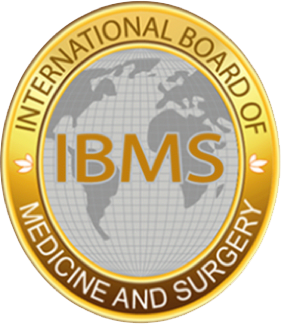| Thu, 28 Aug 2014 17:24:04 GMT
A University of Leeds led study on cosmetic surgery tourism ’Exploring the Cosmetic Surgery Tourism Industry’ offers many insights into the business but also warns that better regulation is vital to protect patients. Surgeons and clinics should be accredited and inspected. The regulation must be transnational not national, and patients find legal redress difficult to access if surgery goes wrong.
Key findings-• Patients are ordinary people on modest incomes.• They tend to spend as little time away from home and family as is possible/ recommended by their surgeon because want to get home to families/ friends.• Cosmetic surgery pathways often follow cheap flights.• Clinics are often located at tourist resorts.• Different patients have surgery for different reasons.• Nobody wants to look like a particular celebrity or achieve a perfect body.• Patients do not make snap decisions• Most patients considered surgery for 5 to 10 years before they decided to have it. Once they made the decision they want surgery as quickly as possible to minimise the time spent dwelling on risks.• Patients lack knowledge of the places they travel to.• Patients are mostly not well travelled and have poor foreign language skills. Most have never visited their destination country prior to surgery.• Patients experience positive outcomes.• 97% are happy with the outcomes of their surgery and would recommend their surgeon to a friend.• Cosmetic surgery tourism agents play a key role in patient experience of place and surgery and in managing patient expectations.• As well as surgeons based in the destination country, many travel to treat patients. • 17% experienced complications. 9% received further treatment in the NHS or Medicare upon returning home. • Private surgeons in home countries are characterised as aloof, inattentive, uncaring and as seeing patients as walking cheque books.
The research charts the experiences of British, Chinese and Australian patients travelling abroad for cosmetic surgery. UK and Australian patients travelled for breast augmentation and uplift, tummy tucks, rhinoplasty and liposuction. Chinese patients travelling to South Korea access more expensive but high quality cosmetic surgery unavailable back home. UK patients in Spain are most usually already living in Southern Spain or Gibraltar so are not actually medical tourists. Everywhere the sample includes medical tourists, expatriates, local cross-border travellers and migrants returning home for treatment.
For UK and Australian patients, cost is the biggest factor influencing decisions to travel abroad. Surgical quality, technique and technology (not cost) are the primary drivers for Chinese patients travelling to South Korea.
UK and Chinese patients stay in their destinations for the shortest time possible to minimise costs (5-7 days average). Australian patients are more likely to combine surgery with a holiday and to stay longer in their destination country (10-15 days average).
All patients put the quality of the surgeon as their primary reason for choosing a specific destination. The reputation of surgeons was judged mostly by personal recommendation, although Australian patients are more likely to consider surgical qualifications. The clinic and destination country is of secondary importance.
Cosmetic surgery tourism agents are typically women and are often former patients. Agencies are largely unregulated and rarely consist of more than a single-person business. Most are working class with limited education and had often been beauticians or administrators. They have between one and thirty clients per month. Some require a fee from the patients; others take commission from hospitals and travel agencies.
Better regulation is vital to protect patients. Surgeons and clinics should be accredited and inspected. The quality assurance of medical devices needs to be tightened. This regulation must be transnational not national.
It is almost impossible to successfully sue across national borders. Patients should be very wary of clinics and surgeons that offer lifetime guarantees and other guarantees as many clinics close after a few years. Many clinics have no medical malpractice insurance cover, and refer claims to the surgeon who is often also uninsured. The report suggests patients should check if surgeons have professional liability insurance- but this is not practical as a condition precedent of such policies is that surgeons must not reveal their existence so if they reveal that detail it automatically invalidates the cover.
Should anything go wrong during surgery, big hospitals often have better facilities than small clinics. Large hospitals have emergency departments and crash teams. In the event of cardiac arrest in a small clinic surgeons may have to call an ambulance and transfer the patient.
Patients don’t always follow medical advice. Some patients drink alcohol soon after their surgery. Others fail to rest sufficiently. Some fail to take their prescribed medicine and some remove bandages or medical support garments too early.
Language barriers and lack of geographical knowledge can make communication difficult. Patients sometimes travel to destinations that are not at all what they expected. They can be shocked by the poverty in their destination, get caught up political protests or even wars, or cause offence by failing to observe important religious or cultural customs. On a more local level many patients do not like the food in destination countries.
Public hospitals back home are not equipped to deal with aftercare and although most complications are minor, healthcare systems are ill equipped to deal with them. Cosmetic surgery tourism is less risky than most people think but is never without risk.
|
